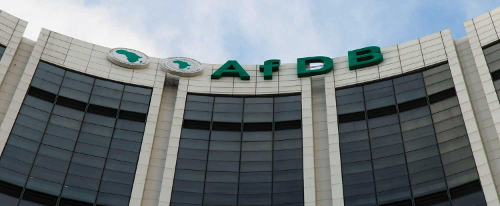AfDB lowers Africa’s growth forecasts amid global uncertainty

The African Development Bank (AfDB) has revised its short to medium-term macroeconomic projections for Africa in 2023 and 2024, lowering them to 3.4% and 3.8% from the initial estimates of 4.0% and 4.3%. This downward adjustment is attributed to persistent long-term impacts of COVID-19, geopolitical tensions, conflicts, climate shocks, a global economic slowdown, and the limited fiscal capacity of African governments to effectively respond to shocks and sustain post-pandemic economic recovery.
The updated figures are part of the 2023 Africa’s Macroeconomic Performance and Outlook (MEO) update, following the Bank's 2023 Africa Economic Outlook released in May. Despite a global decline in inflationary pressures, Africa continues to grapple with persistent inflation, projected to average 18.5% and 17.1% in 2023 and 2024, respectively, according to the update.
Prof. Kevin Urama, Chief Economist and Vice President of the Bank noted, “The challenging global economic environment and multiple shocks continue to shape Africa’s macroeconomic performance. The entrenched inflationary pressures threaten to reverse all the macroeconomic gains made since the easing of pandemic risks while the continued depreciation of domestic currencies in many countries has exacerbated debt service costs.”
Key Takeaways
On the downside, climate shocks coupled with deepening geopolitical tensions in the Middle East and the prolongation of Russia’s invasion of Ukraine could lead to deeper disruptions in global trade and foreign investment flows. This can trigger another round of prolonged tightening of global financial conditions that could further exert depreciation pressure on domestic currencies, increase debt-service costs, exacerbate the increase in debt-service costs, and compound the continent’s funding squeeze. However, coordinated monetary and fiscal policies underpinned by a reduction in fiscal dominance will be essential to rebuild buffers against the shocks. Targeted and sequenced investments to address supply constraints, including addressing structural weaknesses, would also help reverse the downturn in the momentum of economic recovery and put African economies on a higher and more sustainable growth trajectory. In addition, to sustainably reduce inflationary pressures, African countries have to remove the obstacles preventing domestic supply from responding to higher international commodity prices and boost labor productivity through targeted infrastructure and human capital investment.

Next Frontier
Stay up to date on major news and events in African markets. Delivered weekly.
Pulse54
UDeep-dives into what’s old and new in Africa’s investment landscape. Delivered twice monthly.
Events
Sign up to stay informed about our regular webinars, product launches, and exhibitions.




